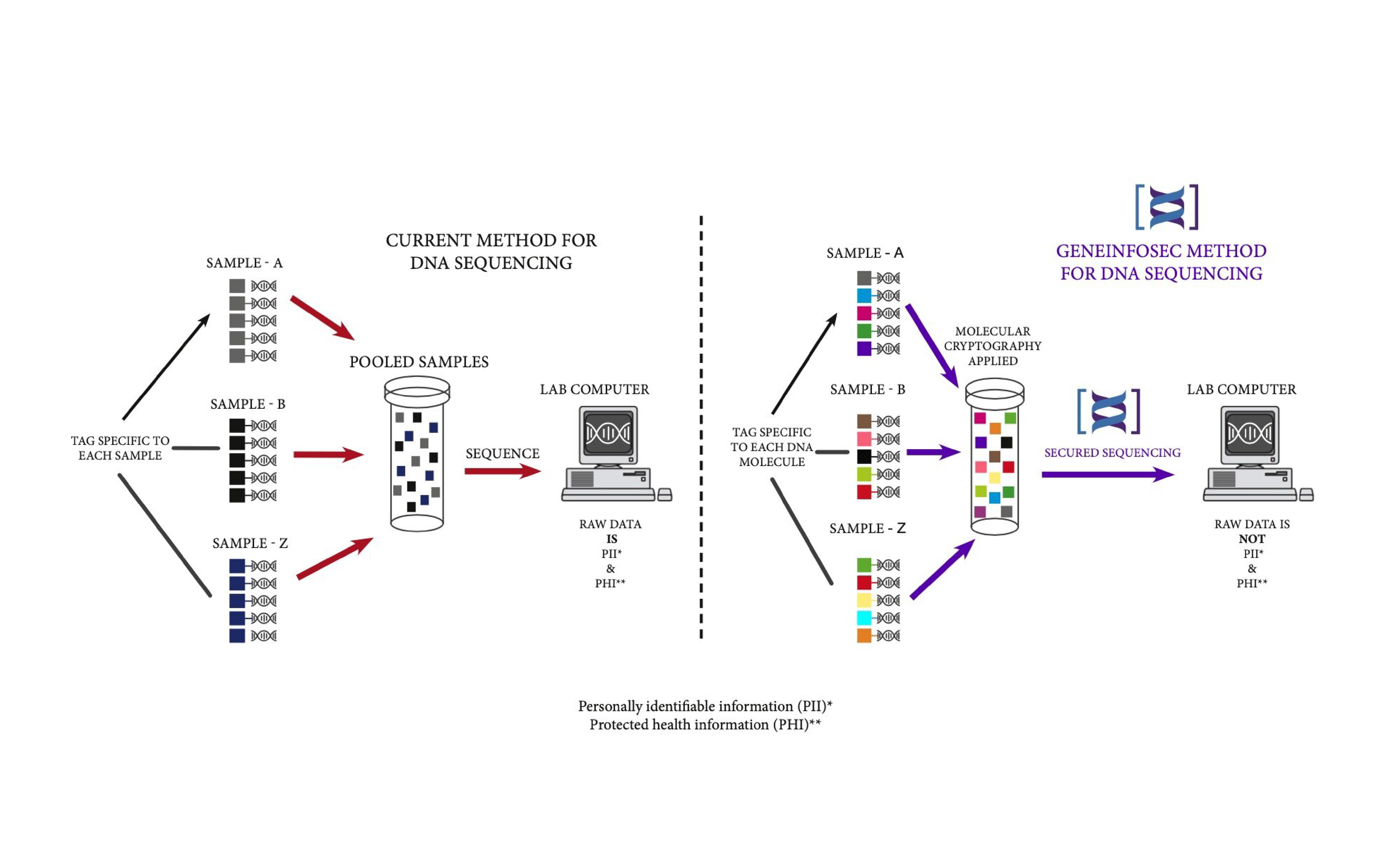
What Is Genetic Information?
To understand how to protect genetic data, an understanding of genetic information is required. The following PDF describes various forms of genetic information, and the methods by which this information can be concealed using molecular cryptography.
Technical Paper
The privacy offered by molecular cryptography can be measured using standard privacy metrics. In the following white paper, the privacy obtained by various theoretical molecular cryptography techniques is measured. The amount of privacy obtained by any specific depends on a range of factors, and these factors are discussed in technical detail.

Benefits & Dangers of Genetic Information
The application of genetic information will lead to great biotech advancements, but these advancements can also be weaponized. Advances in genetic medicine will lead to healthier lives but could also be used to make us ill. Advances in biotechnology will lead to revolutionary cures but also have the potential to aid in the development of bioweapons. Advances in genealogy are giving us an unprecedented understanding of our history but can lead to identification and the loss of anonymity.
Kill Chain
By applying cryptography to physical DNA molecules during laboratory preparation for sequencing, genetic information can be secured at its source. Molecular cryptography provides the ultimate protection of sensitive genetic information and is fully compatible with other forms of data security.

Method Comparison
During sample preparation, DNA is "tagged" with indexes that identify them to their sample. Multiple samples are pooled and sequenced at once, and genetic data is transmitted to a laboratory computer or cloud repository. GeneInfoSec's proprietary molecular cryptographic method tags each physical molecule with a unique index to conceal sample-specific information. Advanced methods allow for concealment of sample-level and population-level genetic information, protecting identifiable and sensitive health information.



